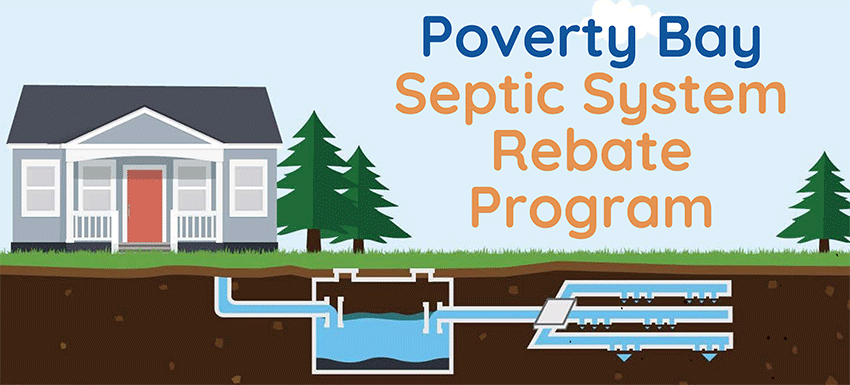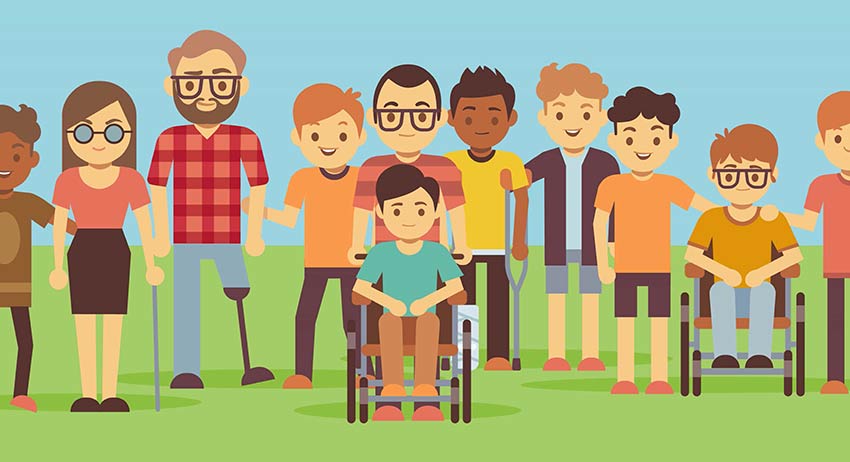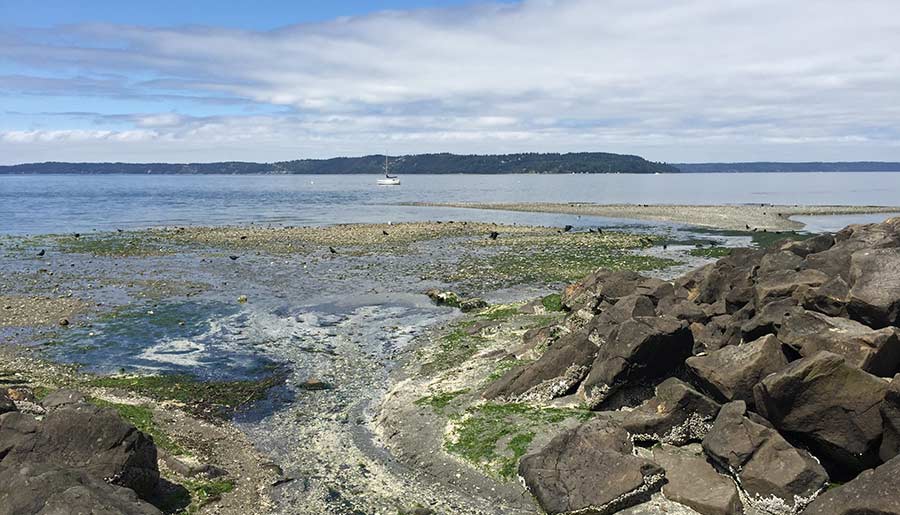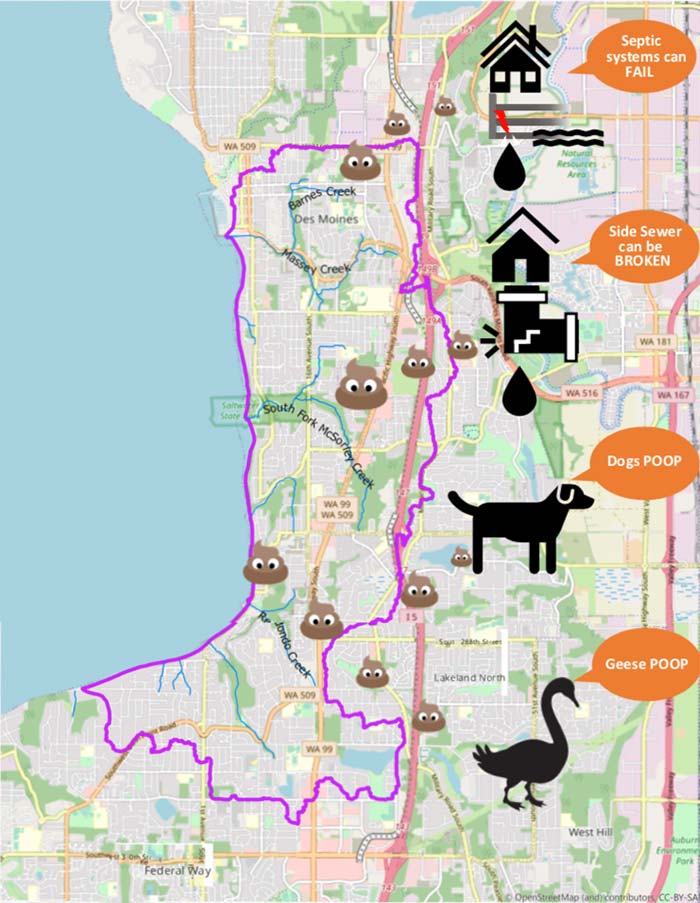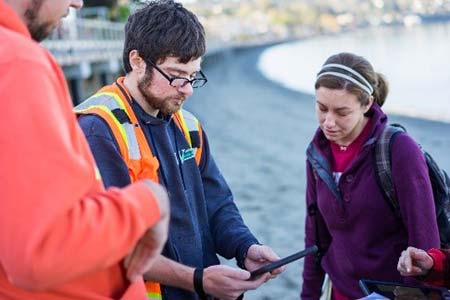Poverty Bay Pollution Identification and Correction Program
Clean water is important to many people in South King County who enjoy Poverty Bay for swimming, diving, boating, beach-walking, and fishing. Yet, water quality in Poverty Bay has worsened over time from various fecal (poop) pollution sources. If poop is in the water, germs, viruses, bacteria, and parasites are present in water, which can be threats to the health of residents, visitors, and animals in the sea.
The Poverty Bay Pollution Identification and Correction (PIC) Program focuses on protecting our community by taking care of poop from humans and animals.
Click here to learn more about what we're doing to find and fix sources of bacteria.
Dog poo left on the ground flows into Puget Sound!
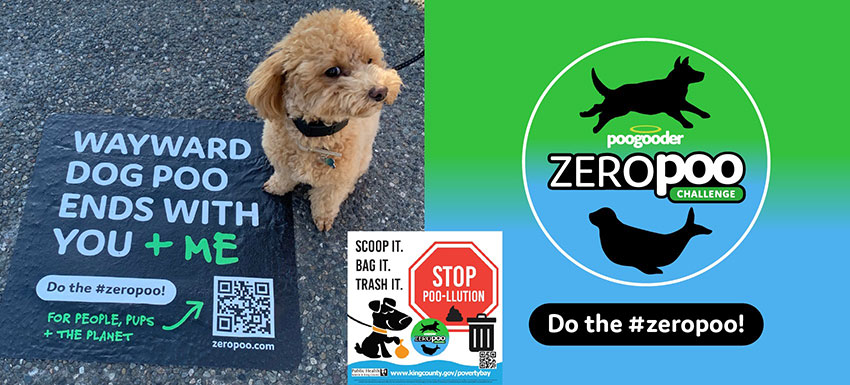
Why Should I Care about Fecal Pollution?
Is poop in the water really that bad? If we are talking about the poop from humans and pets, the answer is “Yes, it is bad.” Unlike poop from orcas and fish, which can be a beneficial fertilizer in the ocean, poop from humans and pets contains germs, viruses, bacteria, and sometimes parasites that can be harmful to the health of water, shellfish, pets, and people.
- Poopy water is not good for walking along the beach, swimming, fishing, and boating in the water. Germs, viruses, bacteria, and parasites in poop from humans and animals can cause serious illness even from just a small amount of poopy water. For example, one gram of dog poop can contain up to 23 million fecal coliform bacteria. Find out more about how poop makes us ill.
- Poopy water consumed by marine plants and animals ultimately threatens our health. Ever worried about E.coli outbreaks from green leafy vegetables? E.coli transmitted from human and animal poop to the water is a concern for those that enjoy Poverty Bay. Poverty Bay is an important area for commercial shellfish harvesting, which extends nearly 1000 acres. The shellfish harvested here go to restaurants where people often enjoy eating them raw. Currently, a large area of Poverty Bay is closed for commercial shellfish harvesting from June through November and closed to public shellfish harvesting due to pollution.
King County is Working with You to Find and Fix Poop Pollution!
Everyone can help prevent fecal pollution! Fixing the pollution by doing all our part helps our families and animals enjoy clean and safe water.
-
King County’s Department of Natural Resources and Parks (DNRP) collects water samples to track the poop pollutants in the water in Poverty Bay. Current water sampling is focused on Redondo and Cold Creeks and the rainwater conveyance systems that drain to those creeks. If water samples have high levels of poop bacteria, then we work to trace the pollution to its source.
Interested in the water quality near you? Check out the map.
- Join us in finding poop pollution!
- We offer free technical assistance for septic system owners. We will help you to prevent septic system failures and pollution on your property.
- Check out our financial assistance programs for your septic system.
- Consider having your sewer infrastructure inspected for broken pipes—they can be quite costly if not found at the right time!

 Translate
Translate
